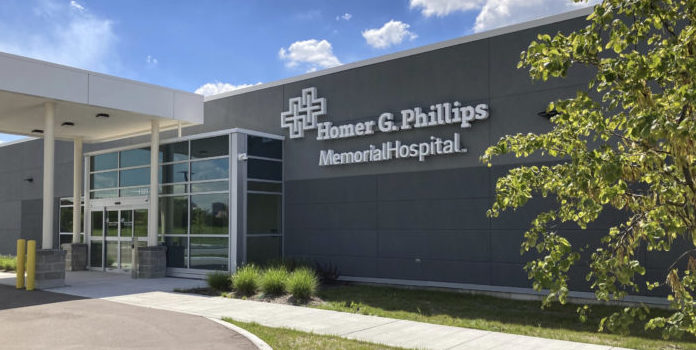(Headline USA) Because the institutionalized Left must make everything about identity politics and racism, a move to honor a segregation-era leader is being slammed instead of praised.
While segregation was still casting its ugly shadow over the U.S., the Homer G. Phillips Hospital was providing top-notch medical care to a predominantly African American part of St. Louis and training some of the world’s best black doctors and nurses.
The 660-bed hospital closed 43 years ago, but the facility named for the man who led the fight to open a first-rate hospital for black residents in segregated St. Louis is still revered by the city’s black community.
So a white developer’s decision to call a new three-bed facility the Homer G. Phillips Memorial Hospital has been met by a strong backlash that includes a lawsuit, protests and newspaper editorials decrying what some see as cultural appropriation.
“That smacks of racism to me,” said Zenobia Thompson, 78, who trained at Homer G. Phillips Hospital in the 1960s before eventually becoming its head nurse. “We are laser-focused and determined that that name will come down.”
Darryl Piggee, a black attorney who serves on the board of directors for the new hospital that is expected to open next spring, said it was his idea to name it after Phillips — to honor his legacy, not profit from it.
“I’m from here, OK? So the idea that it was an appropriation isn’t true,” Piggee said. “I think the board is satisfied we are spreading word of the name of someone people should know about.”
The new hospital, which is in a different section of north St. Louis than the old hospital site, is part of developer Paul McKee’s NorthSide Regeneration project. Funded in part with nearly $400 million in tax increment financing, NorthSide seeks to transform a blighted area north of downtown with new housing, commercial projects and job-creating industry.
The hospital is a small but necessary part of the development. Medical care is scarce in north St. Louis, where about three-quarters of residents are black and the median household income is 40% below the poverty line.
St. Louis’ prominent black newspaper, the St. Louis American, noted in an editorial that it wasn’t opposed to the new medical center “but rather the insensitivity shown by the developer toward a community’s concern for his appropriation of the name of one of the black community’s most hallowed and esteemed institutions.”
In July, Thompson and other nurses who worked at the original Homer G. Phillips Hospital filed suit, claiming trademark infringement. The suit seeks unspecified financial damages and a new name for the center.
Homer G. Phillips was a prominent black attorney who a century ago led the fight for a new St. Louis hospital for black residents in what was at the time one of America’s most segregated cities.
Today, the massive brown-brick building that housed Homer G. Phillips still stands tall, serving as housing for senior citizens. The area around it has hit hard times. There are few businesses nearby, and many homes are vacant and condemned, with smashed-out windows and caved-in roofs. Crime is common and poverty pervades.
“When the hospital was closed it was like the death knell of the community,” Amusa said.
Piggee said the new medical center, and the NorthSide Regeneration project overall, will help revitalize north St. Louis. Hospital President Fred Mills sees it as a vital part of plans for the area.
Mills, who spent decades leading larger hospitals, said Homer G. Phillips Memorial will offer 24-hour emergency room care capable of treating up to 15 patients at a time. The 15,500-square-foot facility includes an MRI imaging machine and amenities such as ports offering easy access to emergency dialysis and a room designed to make sure those with behavioral disorders are kept safe.
The developers have said the plans eventually call for expansion that could include a medical school, housing, a hotel and office space.
“Our dream and the goal is to have a larger facility, but you have to start somewhere,” Mills said.
Jones, who is president of the Homer G. Phillips Nurses’ Alumni, agreed that the new facility is badly needed. She just wants it called something else.
“We want to protect the name and legacy of Homer G. Phillips by having the current name removed from that building,” Jones said. “That’s all we want.”
Piggee said there are no plans to change the name.
“I understand their point of view but we just disagree,” he said. “I would hope we would be able to move on.”
Adapted from reporting by the Associated Press

